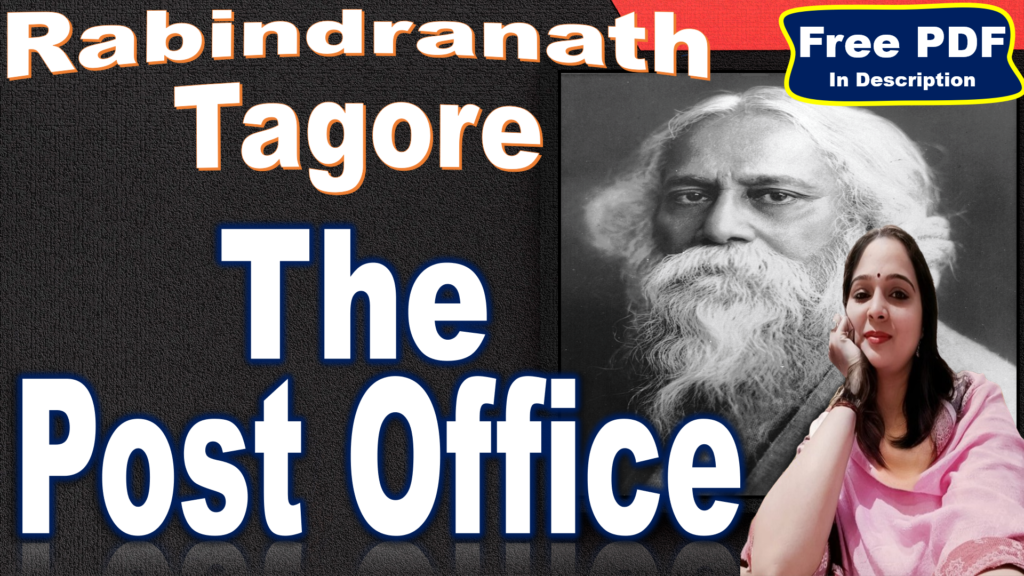
Rabindranath Tagore
Early Life Rabindranath Tagore was born on May 7, 1861, in Calcutta (now Kolkata), India. He was the youngest of thirteen surviving children in the Tagore family, which was at the forefront of the Bengal renaissance. They hosted the publication of literary magazines; theatre and recitals of Bengali and Western classical music featured there regularly.
Education Tagore began writing poetry at the age of eight. His father Debendranath Tagore arranged a tour for him in 1873 to make him familiar with his ancestral estates. He read biographies, studied history, astronomy, modern science, and Sanskrit, and examined the classical poetry of Kālidāsa.
Literary Career Tagore started publishing poems under the pseudonym Bhānusiṃha (“Sun Lion”) at the age of sixteen. His works were seized upon by Victorian-era critics, who according to Tagore, “found something in them which were in harmony with their own mood”.
Notable Works Tagore’s most famous work, “Gitanjali” (Song Offerings), earned him the Nobel Prize in Literature in 1913. His other notable works include “Ghare-Baire” (The Home and the World), “Gora” (Fair-Faced), and “Jana Gana Mana” (the national anthem of India).
Influence Tagore’s influence was not confined to India alone. He was highly influential in introducing Indian culture to the West and vice versa. His works were viewed as spiritual and mercurial, and his elegant prose and magical poetry were widely popular in the Indian subcontinent.
Philosophy Tagore’s works often explored themes of love, nature, spirituality, and the human condition. His philosophy of life was deeply influenced by the Upanishads and his deep love for nature.
Death Tagore died on August 7, 1941, in Calcutta. His death marked the end of an era, but his legacy continues to inspire and influence artists and writers around the world.
Legacy Tagore’s legacy is vast and varied. He is generally regarded as the outstanding creative artist of modern India. His works continue to be celebrated and studied, and his ideas on education, nationalism, and the nature of the universe continue to be relevant.
MEDIA ADAPTATIONS
1. Stage Performances “The Post Office” was originally written in Bengali and first staged at Tagore’s Jorasanko theatre in Calcutta in 1917. This marked the beginning of the play’s journey in the world of theatre. The play, with its universal themes of hope, freedom, and deliverance, resonated with audiences and led to numerous performances by various theatre groups around the world.
2. International Performances The play’s international success is a testament to its universal appeal. It had a successful run in Germany with 105 performances. During World War II, the play was performed in concentration camps. The themes of liberation from captivity and zest for life resonated with the inmates, providing them with a sense of hope and solace amid the harsh realities of their lives.
3. English Performances The play was translated into English as “The Post Office” and performed in 1913 by the Abbey Theatre Company in Dublin, Ireland, and London, England. The English translation made the play accessible to a wider audience and contributed to its international success. The play was then published in English in 1914, further expanding its reach.
4. Adaptations in Other Languages The play has been translated into numerous languages, making it accessible to a global audience. This includes translations into major world languages like Spanish and French by renowned figures such as Nobel laureate Juan Ramón Jiménez and French author André Gide respectively. These translations have played a crucial role in introducing Tagore’s work to non-Bengali speaking audiences and have contributed to his global recognition as a literary figure.
5. Audio and Radio Adaptations The play’s message of hope and liberation was broadcasted on the radio on the eve of Paris’s fall to the Nazis during World War II. The French translation of the play was read out, reaching a wide audience during a time of great turmoil and despair. This broadcast underscored the play’s universal themes and its relevance in times of crisis.
6. Educational Use The play is often used in educational settings as a tool for teaching literature, drama, and the themes explored in the play. It provides a rich text for analysis and discussion, and its universal themes make it relevant and engaging for students.
INDIAN MEDIA ADAPTATION
Film Adaptation: “Dak Ghar” was adapted into a Hindi film directed by Zul Vellani in 19641. This adaptation brought Tagore’s play to the silver screen, reaching a wider audience.
Television Adaptation: In 2015, acclaimed director Anurag Basu adapted many of Tagore’s short stories, including elements from “The Post Office”, into a television series titled “Stories by Rabindranath Tagore”. The series was aired on the EPIC channel. This adaptation brought Tagore’s timeless tales to the small screen, making them accessible to a new generation of viewers.
Stage Productions: The play has also been staged numerous times in various Indian languages, including Bengali and Hindi1. These productions have played a crucial role in keeping Tagore’s work alive in the realm of theatre.





